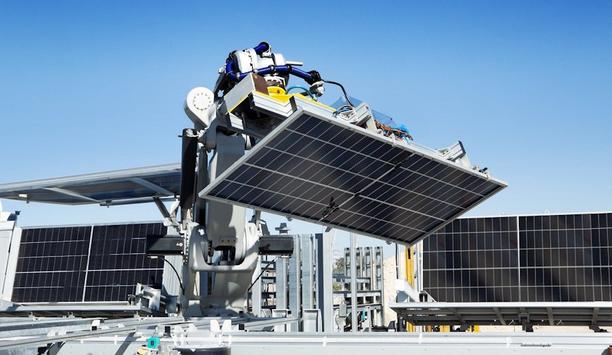Electrification of the UK transportation system is on the way and SMART charging can help ensure that both consumers and the nation benefit from this transition. The recent Road to Zero initiative announcement by the government mandates 100% of car and van sales to be electric by 2030, effectively banning all sales of petrol vehicles after that date.
If users have purchased an electric vehicle (EV) or are considering buying one, chances are users are concerned about the onslaught of climate change and local pollution. But did users know that not all electric vehicle charging solutions are created equal when it comes to not only helping the environment but also to technology and cost savings?
What is Dumb Charging?
Dumb charging is charging the car when the user gets home and leaving it plugged in to charge overnight. Users have no control over how much user are spending to charge the vehicle and are most likely paying peak tariffs. Or it can mean forgetting to charge the car overnight and getting up in the morning only to realize that the user doesn’t have enough charge to get to work or another destination (or worrying that the user may run out of charge along the way).
Eighty percent of today’s charging is on-demand, leading to uncapped charge bills and inefficient usage, not only for consumers but also for the National Grid. In the UK, the National Grid is estimated to spend £3 billion per year on uncontrolled charging.
Then What is SMART Charging?
SMART charging apps allow users to schedule the charge, control the amount of electricity used per hour
Currently, some applications can help users turn the charging experience from dumb to SMART. SMART charging apps allow users to schedule the charge, control the amount of electricity used per hour, and sync the calendar to ensure that users have the amount of charge user need to get to the destination, all at the lowest cost.
SMART charging enables the electric vehicle’s charging to take advantage of Energy Suppliers’ time-based discount pricing with little effort on the part.
Off-peak discount pricing
Power companies offer off-peak discount pricing to entice consumers to use electricity when demand is low. This practice benefits customers with lower prices and saves the power companies from having to create new, expensive power infrastructure to meet peak power demands.
As electric vehicles become increasingly popular and more people are charging their vehicles, the old way of on-demand charging will overwhelm the National Grid.
Energy storage management
SMART charging can also incorporate the personal or business calendar to include the destinations, and it can determine how much charge to add at various locations along the way to minimize the cost.
SMART charging will also review the calendar to ensure the user has enough charge to reach the destination or warn the user when the user will not. More importantly, it will not charge the car when users are not planning to travel. One of the fundamental differences between petroleum-based cars and electric cars is energy storage management.
Lithium-ion cells
Electric cars with batteries work quite differently and need to be carefully managed to maximize battery life
Petrol or diesel cars simply store the liquid in their tanks and the amount does not change until used.
Electric cars with batteries work quite differently and need to be carefully managed to maximize battery life and minimize unnecessary charging costs. The lithium-ion cells in the battery packs of most modern electric cars don’t like to be kept at a full state of charge or a very low state of charge for long periods.
Cooling and heating systems
Batteries also do not like getting too hot or cold so manufacturers have added cooling and heating systems that can drain them when not in use. SMART charging can manage these complexities for users by integrating the car’s battery requirements with the calendar travel plans or the pre-set charging goals.
Drivers of electric vehicles around the world found out that the Coronavirus crisis has severely disrupted our usual driving patterns and necessitated more charging management interventions. SMART charging can handle these issues transparently for electric vehicle drivers.
How Much Can SMART Charging Save Me?
Eighty percent of electric vehicle battery charging takes place at home, where drivers have charging points installed in their garages or driveways.
When these drivers take advantage of SMART charging, they can realize substantial savings. For example, a consumer charging at home using SMART charging could pay 5p/kWh (5 pence per kilowatt hour) for off-peak charging versus the standard rate of 20p/kWh. Charging a 50kWh car battery can cost a user as little as about £2.5 or up to £10 by just changing the time user charges.
Saves 75% costs
The SMART charging app will charge the car at the most economical time, typically while they are sleeping
So, by taking advantage of SMART charging during off-peak hours, users can save up to 75% on the charging costs. All the user needs to do is set up a charging app once, plug in the car when the user gets home, and the user is done.
The SMART charging app will charge the car at the most economical time, typically while they are sleeping.
Cost of recharging
Work is the second most common car battery charging location - 12% happens at work, where the cost of recharging is quite similar to what happens at home, only usually more expensive. The typical cost spread is from 7p/kWh to 30p/kWh. In the prior example of an empty 50kWh battery, the costs could range from £3.5 to £15, depending on when users are charging.
The remaining charging occurs en route or at a destination when drivers need enough additional charge to finish a road trip. This type of recharging can get very expensive. Rates vary greatly but seem to be clustered from 25p/kWh to 50p/kWh, which results in charges from £12.5 to £25.
Public charging points
In the UK, users will find more and more public charging points popping up over time. Many supermarkets and shops have chargers free to use while users shop; for example, TESCO installed 402 charge points at 200 stores. (Also, there are public charging points that are not free so the vast majority of EV drivers have an EV charging point installed at their home).
There are currently 30,000 charge points in the UK for public use across 11,000 locations. This means there are more public charging points than petrol stations, with 10,000 charge points added in 2019 alone. Electric vehicles are not only the way of the future, but they are already the way of the present.
Environmental benefits
Projections indicate approximately 7 million electric cars by 2030 and as many as 36 million by 2040
They emphasized an expected, massive increase in the number of electric vehicles in the UK. Projections indicate approximately 7 million electric cars by 2030 and as many as 36 million by 2040.
The environment will benefit from the reduction in air pollution and carbon emissions, and consumers will save on travel costs per mile. However, the resulting electricity demand increase will put a significant strain on the National Grid.
Reduce the expected increase in electricity demand
SMART charging will help reduce the expected increase in electricity demand by rewarding consumers who use SMART charging to allow their cars to charge during off-peak rates and not charge when it’s not necessary.
This is a win-win scenario with power companies saving money by not having to build expensive new infrastructure to support peak usage and consumers not having to pay for more charge than they need.
SMART charge points
The very nature of EV charging continues to evolve, with technologies emerging that are likely to have a significant impact on SMART charge points, and the future of SMART charging more generally. One of the most creative plans is the Vehicle to Grid (V2G) innovation where vehicles can provide power back to the grid or directly to homes and businesses. This new technology is now being tested in the UK.
Think of the future potential for the grid with as many as 36 million batteries in cars ready to help conquer grid strain by transferring power back to the grid at peak usage. Think of the potential benefits for the pocketbook, the National Grid, and the environment.
SMART charging app
SMART app is at work selling back the electricity it stored to the grid at peak pricing
For example, the user gets home at night and plugs in the car. The user goes to sleep, and the SMART charging app starts charging the car during the low off-peak rate. the SMART app then reviews the driving calendar for the next day and peak usage pricing. The next day users decide to watch a few football games.
While users are watching, the SMART app is at work selling back the electricity it stored to the grid at peak pricing, while still reserving enough electricity to meet the calendared travelling needs.
Saves money
Simply put, the SMART app made users money while user slept and watched football. It is also important that power companies save money by using stored battery power instead of creating more at expensive peak times and having to build the infrastructure to support peak demand.
Lastly, the environment benefits by not having as much power generated but stored until needed, combating local and global climate change.
Electric Miles Way of Intelligent Charging
Electric Miles is the only full-service electric vehicle charging software in the current market, enabling its users to charge the most smartly. The Electric Miles app allows users to fully control the charging experience to ensure that user always have enough charge in the vehicle at the lowest possible price.
The Electric Miles app saves users money from unnecessary stress by allowing them to schedule their charging during off-peak tariff times, sync to their calendar, and control the number of kilowatts per hour to charge.
Intelli-charge control philosophy
The EV Energy Taskforce depicts how SMART Charging Architecture will need to function to interact with all the main actors
Electric Miles Intelli-charge control philosophy combines an EV driver’s energy need; the EV state of charge; and historical and forecast energy consumption to select and automatically control the rate and time of charging considering price, environmental, and payment and billing signals.
This approach allows EM to influence, reward, or incentivize individual energy actors (suppliers, users, chargers, etc.) for charge actions that benefit other individual actors in the network, thereby ensuring users gain from their energy activity. The EV Energy Taskforce depicts how SMART Charging Architecture will need to function to interact with all the main actors of the EV Energy ecosystem.
Electric Miles app
The app also allows users to view their charging history, including useful stats on the amount of energy used, the amount of carbon saved, and most importantly, how much money they saved. Electric Miles is also one of the first SMART charging companies to have secured 8 megawatts of demand-side response Energy Flexibility using electric vehicle assets. Electric Miles is going to start trials in 2021, offering EV owners in certain congested postcodes the opportunity to participate in a V2G test using our platform.
In simpler terms, the Electric Miles app when paired with the charger will enable users to use the electric car as an energy source and participate in V2G benefiting the pocketbook, the National Grid, and the environment.






